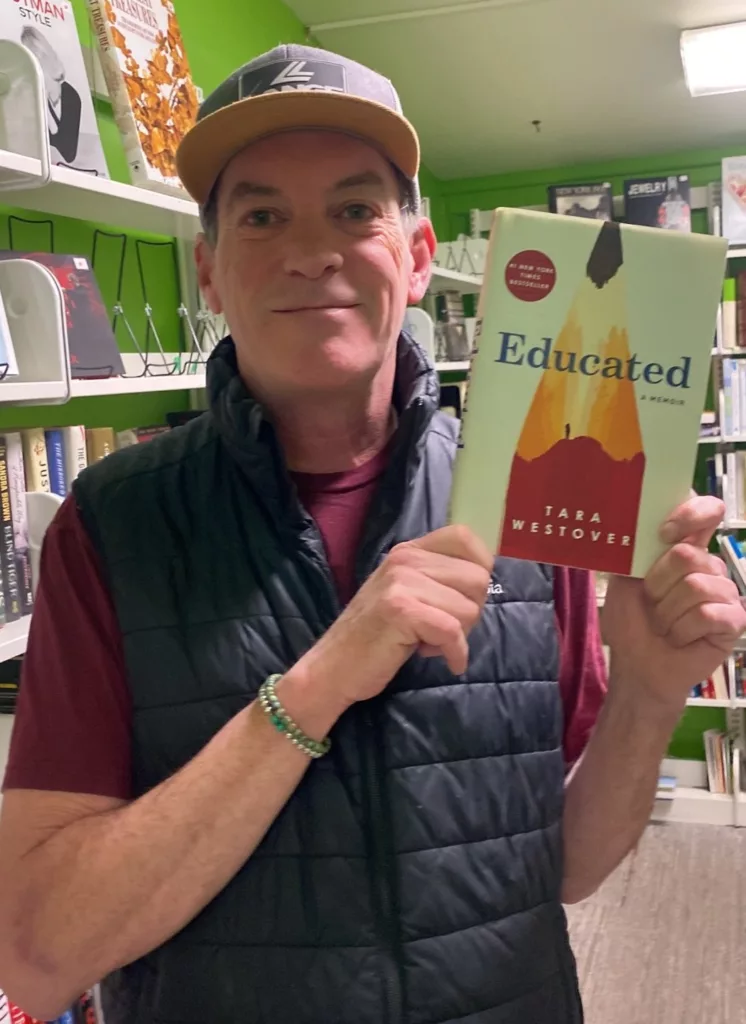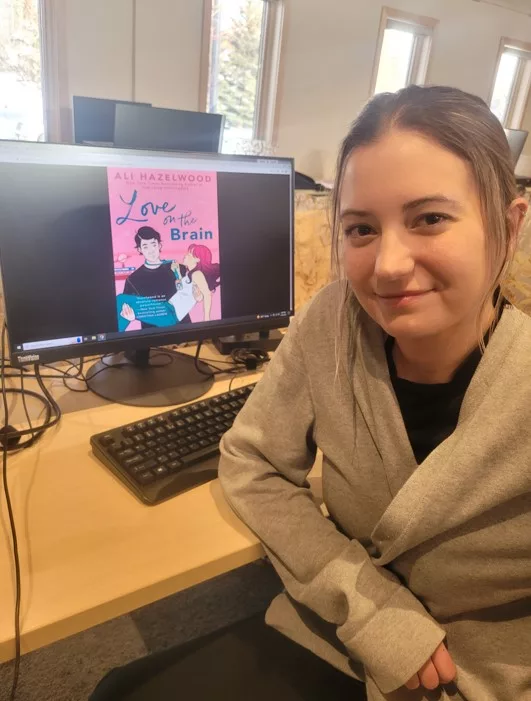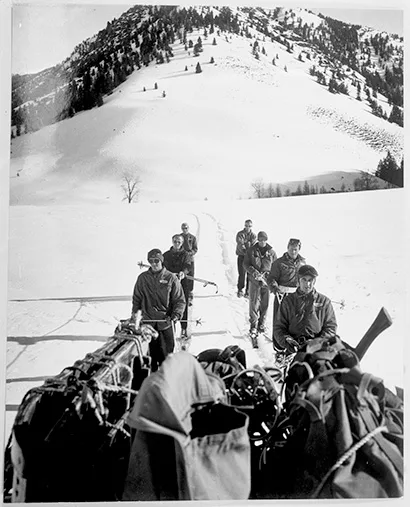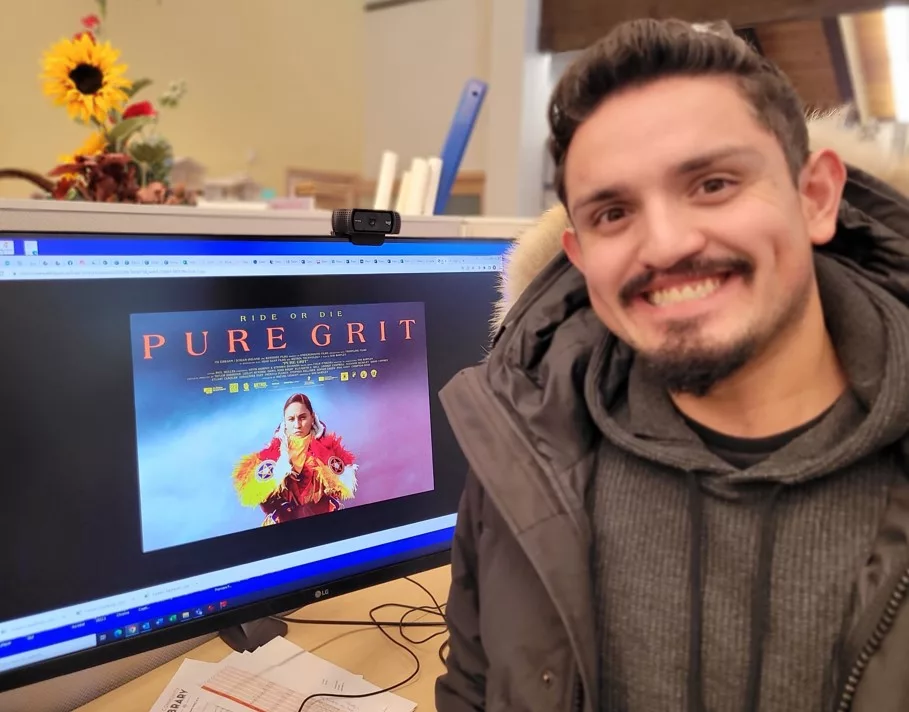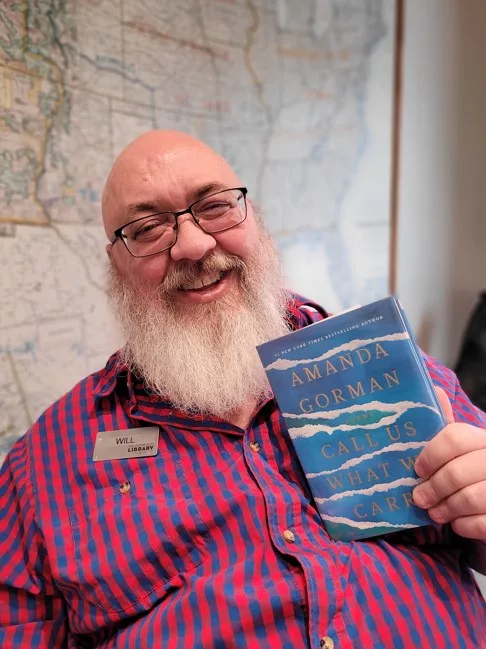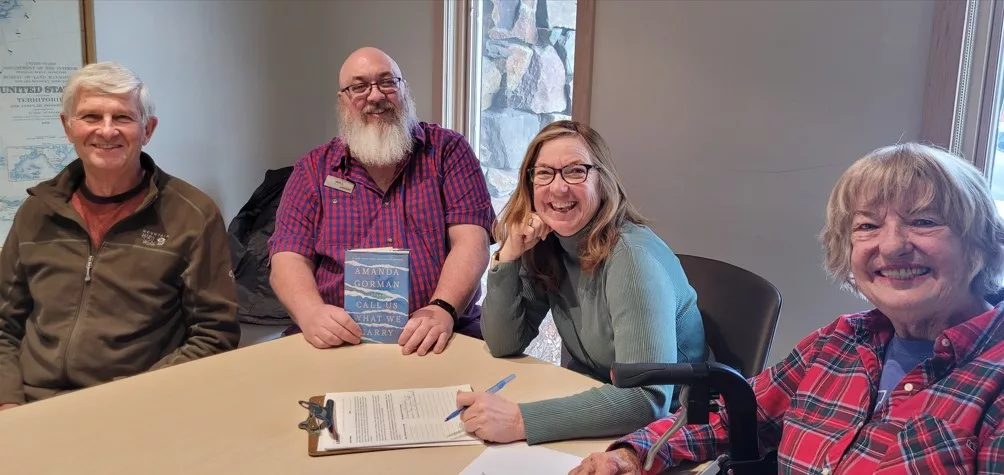Library Foyer Exhibit
February 2023 – Spring 2023
Part of the 2023 Winter Read
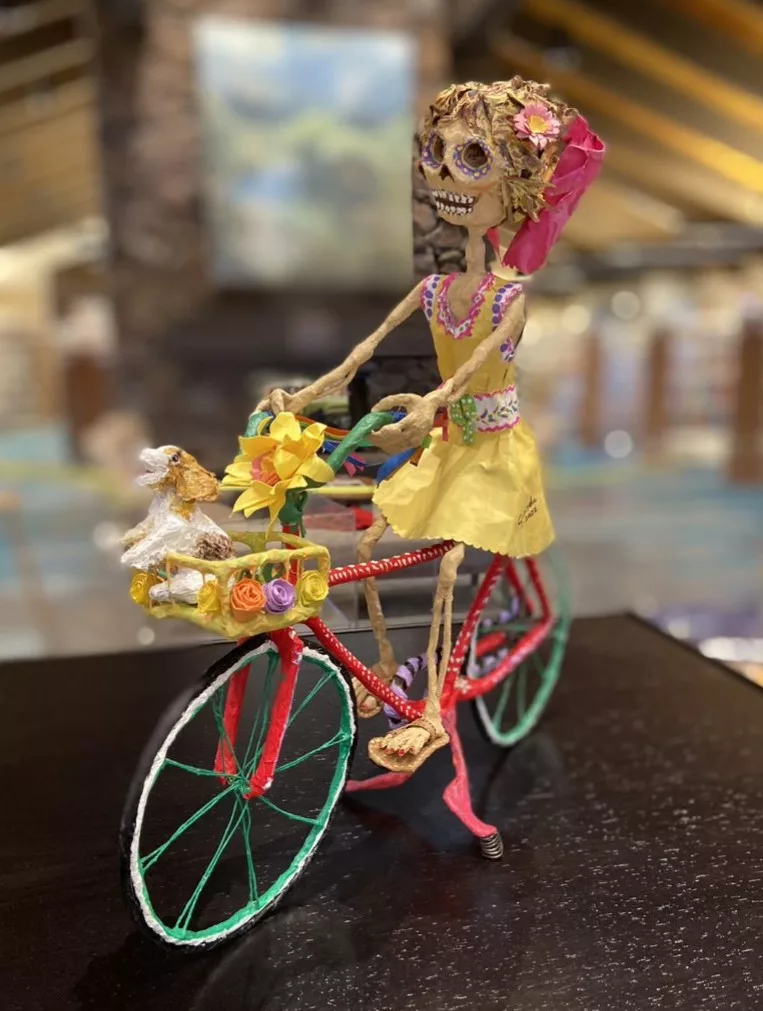
“Las Catrinas” featured the delightful papier-mâché art of Carlos Lecanda. Crafted with intricate detail and expert technique, the exhibit showcased a variety of traditional characters with an exclusive art piece inspired by the 2023 Winter Read, Kali Fajardo-Anstine’s Sabrina & Corina: Stories.
A Guide to Las Primas in the foyer exhibit at The Community Library
Las Primas – created by the papier-mâché artist Carlos Lecanda – represents the title characters of The Community Library’s 2023 Winter Read, Sabrina & Corina: Stories by Kali Fajardo-Anstine.
Kali Fajardo-Anstine’s magnetic story collection breathes life into her Latina characters of indigenous ancestry and the land they inhabit in the American West.
Artist Carlos Lecanda wove symbols, details, and colors into “Las Primas” that represent specific aspects of the characters—from the heart-shaped pillow under Sabrina’s bare foot, to the bee on Corina’s hand.
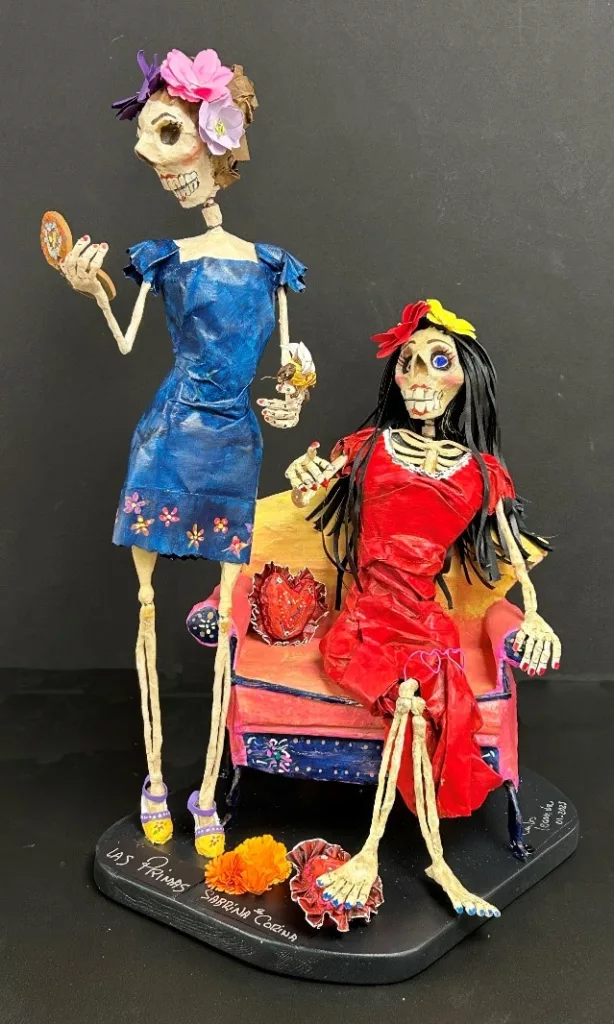
Corina. Standing in a blue dress – which depicts her work as a cosmetologist – Corina’s position suggests a certain distance from Sabrina’s life journey.
Sabrina. Described in the story as a stunning girl with round, wide blue eyes and lustrous black hair, Sabrina, is seated. She is depicted with bare feet and an exposed chest, suggesting a vulnerability that her counterpart does not share.
Heart Pillows. The pillow on the sofa represents the love Sabrina receives from men. Sabrina’s bare foot rests on the other heart-shaped pillow, symbolizing a struggle with her self-esteem. As her grandmother puts it in the story: “…how men loved her too much, how little she loved herself, how in the end it killed her.”
The Heart-shaped Sunglasses. In the story, Sabrina steals the sunglasses from a dollar store when she is in junior high. They hold a significant memory for Sabrina, and they remind us that she had dreams of moving to “Cali” one day and becoming a big star.
The Pink Sofa. The sofa serves as a representation of one found in the receiving area of a mortuary, which Sabrina and Corina saw years before when their grandfather passed away. The artist places Sabrina on the pink sofa to symbolize her tragic destiny.
The Marigolds. Marigolds line the cement path leading to the entrance of the mortuary, creating a decorative border. Marigolds, also known as cempasúchil in Nahuatl, have a meaningful cultural significance during Dia de los Muertos (Day of the Dead), as they are often used as an offering to honor and celebrate the lives of loved ones who have passed away.

The Bee. Carina recalls her earliest memory of the world, when, laying on “a blanket the color of marigolds,” a bee landed on her cheek and stung her. Sabrina claims the incident with the bee happened to her, and that Corina is taking Sabrina’s memory as her own. We are reminded that Sabrina once claimed of Corina in anger: “All you’ve done your entire life is follow me around.” The artist places the bee on Corina’s hand, signifying that the memory belongs to – or at least lives on with – her.
The Exhibit. Las Catrinas: A Celebration of Mexican Culture will be on display in the Library foyer through spring. You’ll also find a special display of Lecanda’s papier-mâché art in the Children’s Library.
The Artist. Carlos Lecanda, a native of Guanajuato, Mexico, has made a name for himself as a master of traditional Mexican papier-mâché art. Growing up in Mexico City, Lecanda was heavily influenced by his father’s artisanal work and honed his craft at art schools throughout the city.
Lecanda’s studio is now based in Mazatlán. He specializes in creating intricate and vibrant catrinas, piñatas, paper flowers, and quilling art, a form of paper craft that involves rolling, shaping, and gluing strips of paper to create mesmerizing designs. Lecanda’s catrinas are particularly noteworthy, as they are imbued with the energy, action, and fashion style of their own personalities, while remaining true to the authenticity of Mexican traditions.
The Winter Read. Every winter, we read a story together. A series of events are slated, including programs, speakers, a film screening, book groups, and discussions. The Winter Read culminates on March 9, 2023, with a keynote by Kali Fajardo-Anstine, author of Sabrina & Corina.
